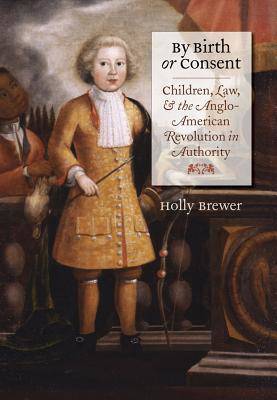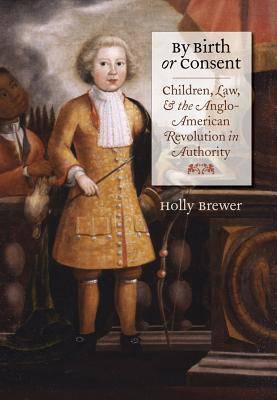
- Retrait gratuit dans votre magasin Club
- 7.000.000 titres dans notre catalogue
- Payer en toute sécurité
- Toujours un magasin près de chez vous
- Retrait gratuit dans votre magasin Club
- 7.000.000 titres dans notre catalogue
- Payer en toute sécurité
- Toujours un magasin près de chez vous
57,95 €
+ 115 points
Description
In mid-sixteenth-century England, people were born into authority and responsibility based on their social status. Thus elite children could designate property or serve in Parliament, while children of the poorer sort might be forced to sign labor contracts or be hanged for arson or picking pockets. By the late eighteenth century, however, English and American law began to emphasize contractual relations based on informed consent rather than on birth status. In By Birth or Consent, Holly Brewer explores how the changing legal status of children illuminates the struggle over consent and status in England and America. As it emerged through religious, political, and legal debates, the concept of meaningful consent challenged the older order of birthright and became central to the development of democratic political theory.
The struggle over meaningful consent had tremendous political and social consequences, affecting the whole order of society. It granted new powers to fathers and guardians at the same time that it challenged those of masters and kings. Brewer's analysis reshapes the debate about the origins of modern political ideology and makes connections between Reformation religious debates, Enlightenment philosophy, and democratic political theory.
In mid-sixteenth-century England, people were born into authority and responsibility based on their social status. By the late eighteenth century, however, English and American law began to emphasize contractual relations based on informed consent rather than on birth status. In By Birth or Consent, Holly Brewer explores how the changing legal status of children illuminates the debates over consent and status in England and America. The struggle over meaningful consent had tremendous political and social consequences, affecting the whole order of society. As it emerged through religious, political, and legal debates, the concept of meaningful consent challenged the older order of birthright and became central to the development of democratic political theory.
The struggle over meaningful consent had tremendous political and social consequences, affecting the whole order of society. It granted new powers to fathers and guardians at the same time that it challenged those of masters and kings. Brewer's analysis reshapes the debate about the origins of modern political ideology and makes connections between Reformation religious debates, Enlightenment philosophy, and democratic political theory.
In mid-sixteenth-century England, people were born into authority and responsibility based on their social status. By the late eighteenth century, however, English and American law began to emphasize contractual relations based on informed consent rather than on birth status. In By Birth or Consent, Holly Brewer explores how the changing legal status of children illuminates the debates over consent and status in England and America. The struggle over meaningful consent had tremendous political and social consequences, affecting the whole order of society. As it emerged through religious, political, and legal debates, the concept of meaningful consent challenged the older order of birthright and became central to the development of democratic political theory.
Spécifications
Parties prenantes
- Auteur(s) :
- Editeur:
Contenu
- Nombre de pages :
- 408
- Langue:
- Anglais
- Collection :
Caractéristiques
- EAN:
- 9780807858325
- Date de parution :
- 26-02-07
- Format:
- Livre broché
- Format numérique:
- Trade paperback (VS)
- Dimensions :
- 150 mm x 234 mm
- Poids :
- 621 g







